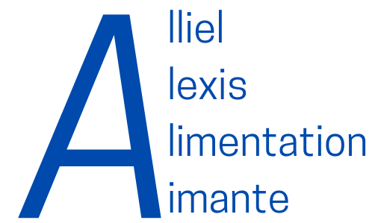Orthorexia, Food Intolerances and Allergies: Finding Balance in Paris
Introduction: When Healthy Eating Becomes an Obsession
Living in Paris as an expatriate brings unique food challenges. Between navigating French cuisine with dietary restrictions, decoding food labels in a foreign language, and adapting to different meal structures, it's no wonder that many internationals develop anxious relationships with food. Add the pressure of social media's "clean eating" culture and legitimate health concerns, and you have the perfect storm for orthorexia nervosa to develop.
Recent studies show that up to 49% of Instagram users following health food accounts display signs of orthorexic behavior. For expatriates, this risk increases significantly - research indicates that individuals living abroad show 5.5 times higher rates of restrictive eating patterns. As a bilingual dietitian specializing in eating disorders in Paris, I've witnessed how the intersection of food allergies, cultural adaptation, and wellness culture can transform necessary dietary management into an all-consuming obsession.
The good news? It's entirely possible to manage genuine food sensitivities without falling into the orthorexia trap. The key lies in understanding the difference between medical necessity and psychological rigidity, between self-care and self-punishment. This article will help you navigate this delicate balance while adapting to life in France.
Understanding Orthorexia: When "Clean Eating" Goes Too Far
Defining Orthorexia Nervosa
Orthorexia nervosa, literally meaning "correct appetite," is an unhealthy obsession with eating foods perceived as healthy, pure, or "clean." Unlike anorexia or bulimia, which focus on quantity, orthorexia centers on food quality - often starting from genuine health concerns that spiral into rigid, life-limiting behaviors.
Key characteristics include:
Spending excessive time (3+ hours daily) thinking about food choices
Severe distress when "pure" foods aren't available
Social isolation due to dietary restrictions
Self-worth increasingly tied to dietary adherence
Gradual elimination of entire food groups
Feeling superior to others based on dietary choices
The progression typically follows this pattern: Initially, you might eliminate processed foods for health reasons. Then sugar becomes "toxic." Soon, non-organic produce feels contaminating. Before you know it, your safe food list has shrunk to a handful of items, and dining out or sharing meals becomes impossible. What began as health consciousness has become a prison of your own making.
The Expatriate Vulnerability Factor
Living abroad creates unique vulnerabilities to orthorexic behaviors. The loss of familiar food systems, combined with language barriers and cultural differences, can trigger a need for control that manifests through dietary restriction.
Cultural food conflicts play a significant role. Anglo-Saxon cultures often view food through a health-morality lens - foods are "good" or "bad," eating choices reflect character. French culture, conversely, emphasizes pleasure, quality, and social connection through food. This clash can leave expatriates feeling confused and anxious about their choices.
Social isolation compounds the issue. When you can't fully explain your dietary needs in French, or when French friends don't understand your food anxieties, it's easier to simply avoid social eating altogether. This withdrawal reinforces orthorexic patterns and deepens the isolation-restriction cycle.
The Complex Dance: Medical Restrictions vs. Psychological Rigidity
When Allergies and Intolerances Become Gateway Behaviors
Legitimate food allergies and intolerances require careful dietary management - there's no question about that. However, research shows that medically necessary food elimination can sometimes serve as a "gateway" to orthorexic patterns, especially during stressful life transitions like international relocation.
The slippery slope often looks like this:
Stage 1: Eliminating allergens (necessary and appropriate)
Stage 2: Becoming hypervigilant about cross-contamination
Stage 3: Eliminating foods that "might" cause problems
Stage 4: Restricting based on fear rather than medical need
Stage 5: Food choices dominated by anxiety, not health
Warning signs you've crossed the line:
Avoiding foods you're not actually allergic to "just in case"
Refusing to eat foods prepared by others, even when safe
Experiencing panic attacks about potential contamination
Eliminating foods based on online articles rather than medical testing
Your restricted list keeps growing despite no new diagnoses
The French Food System Challenge
Navigating French food culture with dietary restrictions presents real challenges that can fuel orthorexic anxieties. French cuisine's heavy reliance on butter, cream, and wheat, combined with different labeling standards, creates legitimate concerns for those with medical dietary needs.
Real challenges include:
Restaurant staff sometimes dismissive of dietary restrictions
"May contain traces" warnings on seemingly everything
Limited "free-from" options outside major cities
Social pressure to participate in bread and cheese culture
Different food preparation methods increasing contamination risk
However, France also offers advantages:
EU regulations requiring clear allergen labeling
Excellent fresh produce markets for whole food cooking
Growing awareness and accommodation of dietary needs
Pharmacies as knowledgeable health resources
Quality-focused food culture supporting real, unprocessed foods
The key is distinguishing between necessary precautions and excessive restrictions driven by anxiety rather than medical need.
The Social Media Amplification Effect
Digital Wellness Culture Gone Wrong
Social media has fundamentally changed how we relate to food and health. For expatriates already navigating food anxieties, the algorithmic echo chambers of Instagram and TikTok can rapidly escalate normal health consciousness into pathological obsession.
The numbers are staggering: Recent 2024 research shows that TikTok delivers 335% more diet content and 4,343% more toxic eating disorder content to users showing interest in health topics. Instagram users following "clean eating" accounts show orthorexia rates of 49%, compared to 1-2% in the general population.
How algorithms fuel orthorexia:
Serving increasingly extreme content to maintain engagement
Creating false consensus through filtered feeds
Promoting before/after transformations that normalize restriction
Amplifying pseudoscientific food fears
Encouraging competitive "wellness" behaviors
Red flags in your social media consumption:
Following multiple "what I eat in a day" accounts
Feeling guilty after seeing others' "clean" meals
Saving recipes you'd never actually make (too restrictive)
Comparing your eating to influencers'
Feeling anxious if you can't photograph your "healthy" meal
Creating Healthier Digital Boundaries
Protecting yourself from toxic wellness culture while staying informed requires intentional digital hygiene. This is especially important for expatriates who may rely heavily on online communities for connection and information.
Strategies for healthier social media use:
Unfollow accounts that trigger food guilt or comparison
Seek diverse body and food representations
Follow intuitive eating and Health at Every Size advocates
Limit food/health content to 20% of your feed
Use timer apps to restrict scrolling time
Remember: influencers' meals are performances, not reality
Finding Balance: Practical Strategies for Recovery
The Non-Diet Approach to Managing Restrictions
Living with food allergies or intolerances doesn't mean accepting a life dominated by fear and restriction. A non-diet approach allows you to honor medical needs while maintaining psychological flexibility and food freedom within your safe parameters.
Core principles:
Focus on what you CAN eat, not restrictions
Emphasize addition (nutrients, variety) over elimination
Separate medical necessity from moral judgment
Allow imperfection within safety boundaries
Prioritize social connection alongside health
Practical applications:
Keep a list of safe restaurants and dishes you enjoy
Develop a repertoire of delicious allergen-free recipes
Practice explaining your needs in French without apologizing
Find expatriate groups navigating similar challenges
Remember: perfect adherence isn't necessary for health
Building Your Support Network in Paris
Recovery from orthorexia, especially while managing genuine dietary restrictions, requires professional support and community connection. Paris offers excellent resources for English-speaking expatriates, though knowing where to look is essential.
Professional resources:
International Counseling Service (ICS Paris): Sliding scale therapy
Paris Psychology Centre: Eating disorder specialists
English-speaking dietitians trained in non-diet approaches
Support groups through Message and AFDAS-TCA
Community connections:
Expatriate Facebook groups for restaurant recommendations
International food markets for familiar products
Cooking classes adapted for dietary restrictions
Mindful eating groups in English
Online support communities for recovery
Navigation strategies:
Build relationships with local pharmacists
Find allies in French friends who understand
Create food cards explaining your needs in French
Identify "safe" restaurants for social dining
Develop backup plans for challenging situations
Practical Daily Strategies for Balanced Living
Meal Planning Without Obsession
Structure supports recovery, but rigidity reinforces disorder. The goal is creating flexible frameworks that ensure nutritional needs are met while leaving room for spontaneity and pleasure.
Balanced planning looks like:
Weekly shopping for staples, not every meal planned
2-3 backup meal ideas for tired days
Regular eating times with flexibility for social events
Batch cooking basics, not entire meals
Room for restaurant meals and invitations
Red flags to avoid:
Planning every bite days in advance
Panic when plans change
Refusing invitations due to meal prep
Identical meals daily for "safety"
Measuring or weighing everything
Navigating French Food Culture
Successfully managing dietary restrictions in France requires cultural adaptation alongside medical management. Understanding French food values helps reduce conflict and anxiety.
Successful strategies:
Learn to explain your needs without over-explaining
Focus on food quality (very French) rather than health rules
Find French foods that naturally fit your needs
Participate in meal culture within your boundaries
Appreciate French emphasis on fresh, seasonal eating
Communication tips:
"Je suis allergique à..." (I'm allergic to...) is taken seriously
"Pour raisons médicales" (for medical reasons) adds weight
Avoid lengthy explanations about food philosophy
Express appreciation for accommodation
Bring safe contributions to shared meals
When to Seek Professional Help
Recognizing the Warning Signs
Distinguishing between careful management of medical conditions and orthorexic behavior requires honest self-assessment. If food dominates your thoughts and limits your life, it's time to seek support.
Seek immediate help if you experience:
Spending 3+ hours daily on food thoughts/preparation
Declining social invitations due to food anxiety
Significant weight loss or nutritional deficiencies
Panic attacks about food choices
Depression or anxiety linked to eating
Physical symptoms from over-restriction
Early intervention indicators:
Increasing food rules beyond medical needs
Growing list of "fear foods"
Guilt or shame about eating
Comparing your eating constantly to others
Food interfering with work or relationships
The Recovery Journey
Recovery from orthorexia while managing genuine dietary restrictions is absolutely possible. It requires patience, professional support, and a commitment to psychological flexibility alongside medical safety.
Recovery milestones to celebrate:
Eating out without excessive anxiety
Accepting food prepared by others (when safe)
Spontaneous food choices within restrictions
Social eating without guilt
Food thoughts occupying less mental space
Identity expanding beyond dietary choices
Recovery isn't about abandoning all food consciousness - it's about finding the sweet spot where you can honor your body's medical needs without sacrificing your mental health and social connections.
Conclusion: Embracing Food Freedom Within Boundaries
Living with food allergies or intolerances in Paris as an expatriate presents unique challenges, but it doesn't have to lead to orthorexia. By recognizing the signs of when healthy management becomes unhealthy obsession, you can maintain necessary dietary boundaries while preserving psychological flexibility and joie de vivre.
Remember that true health encompasses mental, social, and emotional wellbeing alongside physical health. Your worth isn't determined by your dietary perfection, and your food choices don't define your character. Whether you're navigating celiac disease in the land of baguettes or managing dairy intolerance in cheese paradise, you deserve a peaceful relationship with food.
The path forward involves honoring your medical needs without allowing them to consume your life, finding community and support in your adopted city, and remembering that perfect eating doesn't exist - even in the pursuit of health. Paris offers incredible opportunities for food enjoyment within any dietary framework; the key is remaining flexible enough to embrace them.
Living and eating are two sides of the same coin. Lighten your relationship with food and free yourself from what doesn't serve you!
📚 When Healthy Becomes Obsession: Be cautious with restrictive vegetarian diets and ARFID. Explore the sugar addiction myth.
📚 SOURCES AND REFERENCES


Vivre et manger sont les deux faces de la même pièce
Lighten your relationship with food and free yourself from what hinders you!
+33 6 22 41 55 21
© 2024. All rights reserved.
RPPS : 10007258733
N° ADELI : 75 95 0878 1
